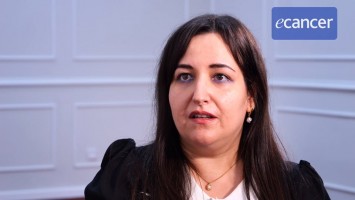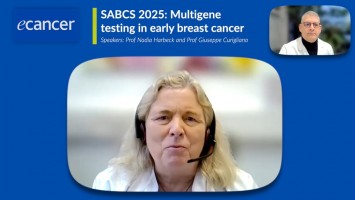I’m going to start by saying that older women with a sporadic breast cancer present more frequently with hormone receptor positive tumours while younger women had a greater proportion of triple negative breast cancer. So women with triple negative breast cancer have a high prevalence of germline mutations and the frequency is around 12%. Current guidelines recommend to do genetic cancer risk assessment for all women with triple negative breast cancer who were diagnosed at the age of 60 or below. So we were interested in looking at patients that were diagnosed at over 60.
How was this research completed?
This is work from the Clinical Cancer Genomic Research Network. It is led by Dr Jeffrey Weitzel from City of Hope and it’s a collaborating group from more than 40 collaborating sites in the United States, in Mexico and South America.
What we did is that we looked at the registry to see how many patients had the characteristics that we were looking for – triple negative breast cancer in older women. We found that only 7% of this registry were women over 60 years and had triple negative breast cancer and genetic testing. Our findings were very interesting because we found 13% of this population had pathogenic variants or positive results. We found that the most common mutation or germline mutation was BRCA1 in around 55% of the cases followed by PALB2 and RAD51C.
Then we looked at the referral criteria for genetic testing between carriers and non-carriers and we didn’t find any differences. Age at diagnosis was similar between both groups, the number of relatives with breast cancer or ovarian cancer was also similar. The only thing that was different in our study is the number of patients with second breast cancer, it was a little bit higher in the carrier group.
So what does that mean for treatment options?
The frequency of germline mutations that we found in the older population was similar to the previous reports in a younger population. Thus it means that all older patients with triple negative breast cancer should have a genetic testing maybe, but at least they should be referred for a genetic consultation and an expert can explore more deeply on other factors that could be related with the disease.
So what’s your final message?
All women with triple negative breast cancer, regardless of age, should be referred to genetic cancer risk assessment.








